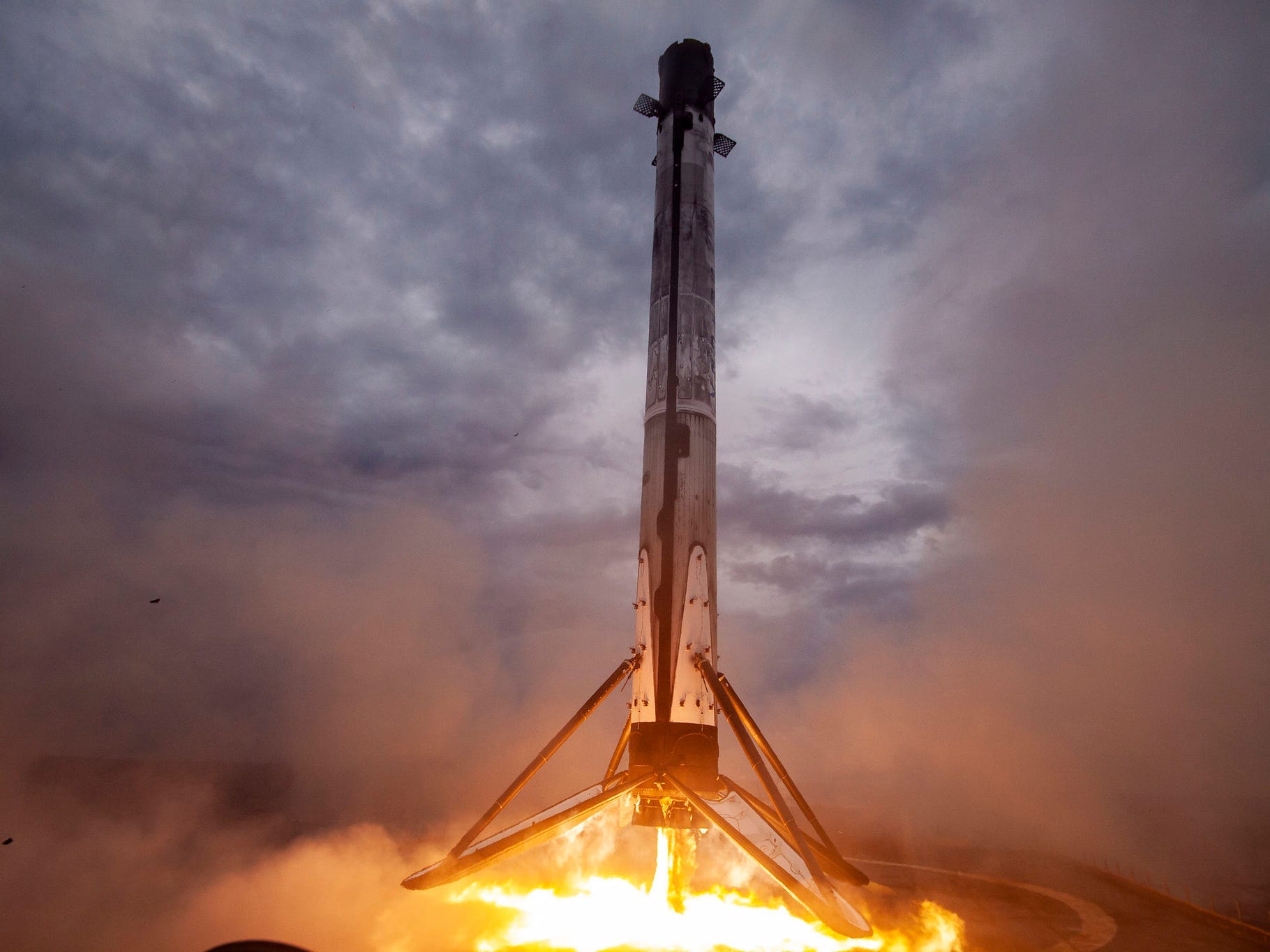
SpaceX
- SpaceX’s Falcon 9 rocket failed to safely land its booster on Monday.
- The rocket launched satellites for Elon Musk’s Starlink internet service.
- Visit the Business section of Insider for more stories.
Despite a successful launch of 60 satellites, SpaceX’s Falcon 9 rocket’s booster did not successfully complete its landing on Monday.
The launch marked the sixth flight for Falcon 9 as it set out to disperse more satellites for the SpaceX’s new Starlink satellite internet service, according to SpaceNews. It succeeded in launching the satellites, but the company not able to recover the rocket on a ship in the Atlantic Ocean waiting to catch it.
In a livestream of the launch, commentator and SpaceX engineer Jessica Anderson, said “it does look like we did not land our booster on Of Course I Still Love you tonight. It is unfortunate that we did not recover this booster but our second stage is still on a nominal trajectory.”
On Twitter, CEO Elon Musk said part of the rocket was successfully recovered.
The Falcon 9, according to SpaceX's website, measures 70 meters high, 3.7 meters wide, and weighs nearly 550,000 kilograms.
SpaceX posted a video of Falcon 9's successful launch from Cape Canaveral, Florida, on Monday. However, as SpaceNews reported, the first stage of the rocket missed its planned droneship landing in the Atlantic, pointing to a potential loss in the ocean.
According to SpaceX's website, the Falcon 9 rocket is part of the "Merlin" family of engines. "The Merlin engine was originally designed for recovery and reuse," says SpaceX's description. However, the Falcon 9's apparent loss puts an end to the possibility of reuse for that particular rocket.
Read more: MONEY FOR MARS: Inside SpaceX's quest to make Starlink the world's top off-planet internet business
Ars Technica reported that SpaceX is planning the launch of another Starlink mission potentially as early as Wednesday, February 17.
Earlier in February, Insider reported, a SpaceX filing showed more than 10,000 Starlink customers even as the satellite service is still in beta.
"Starlink is now delivering initial beta service both domestically and internationally, and will continue expansion to near global coverage of the populated world in 2021," the company said Monday night.